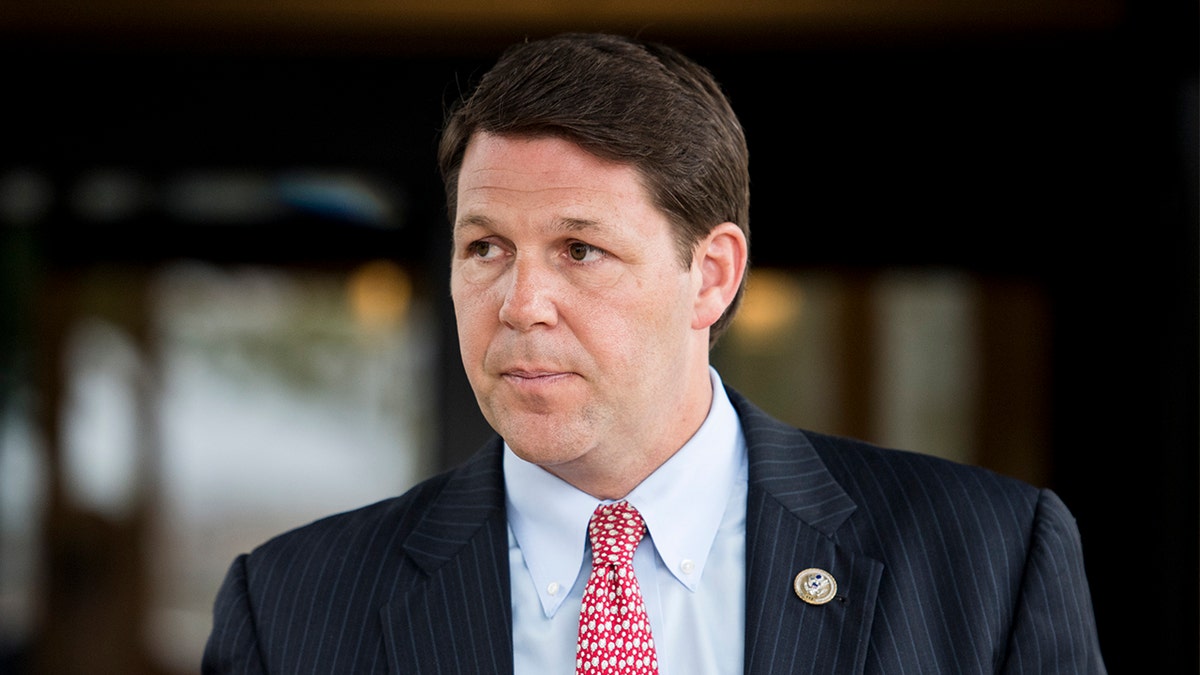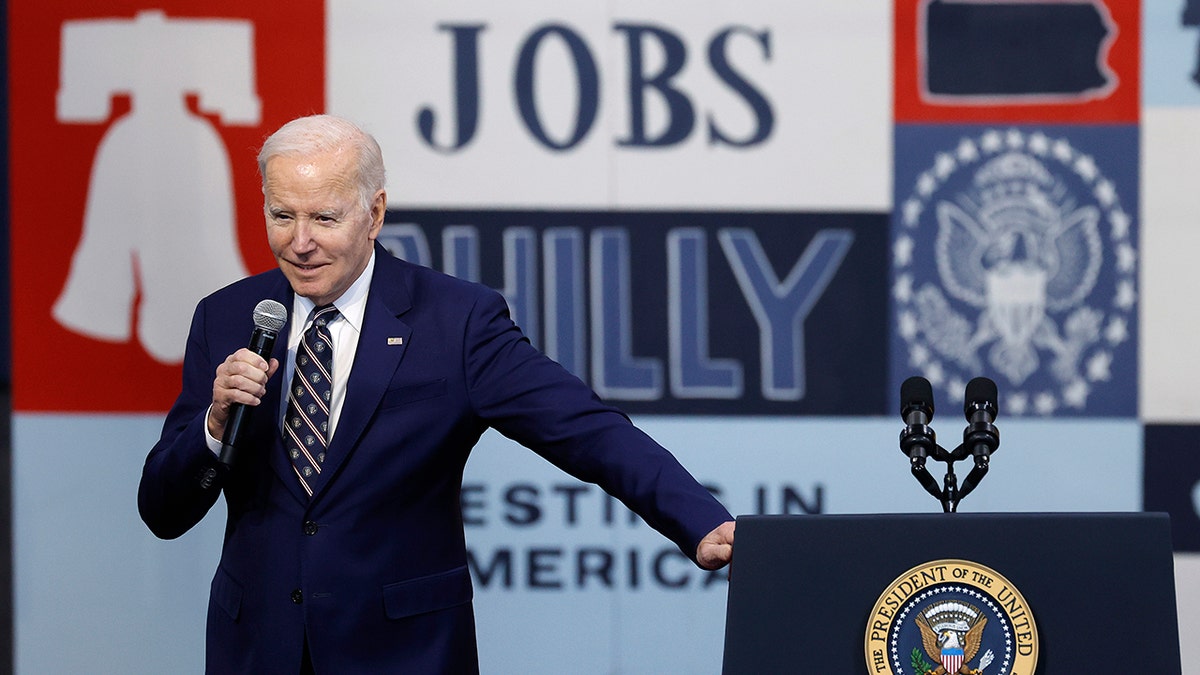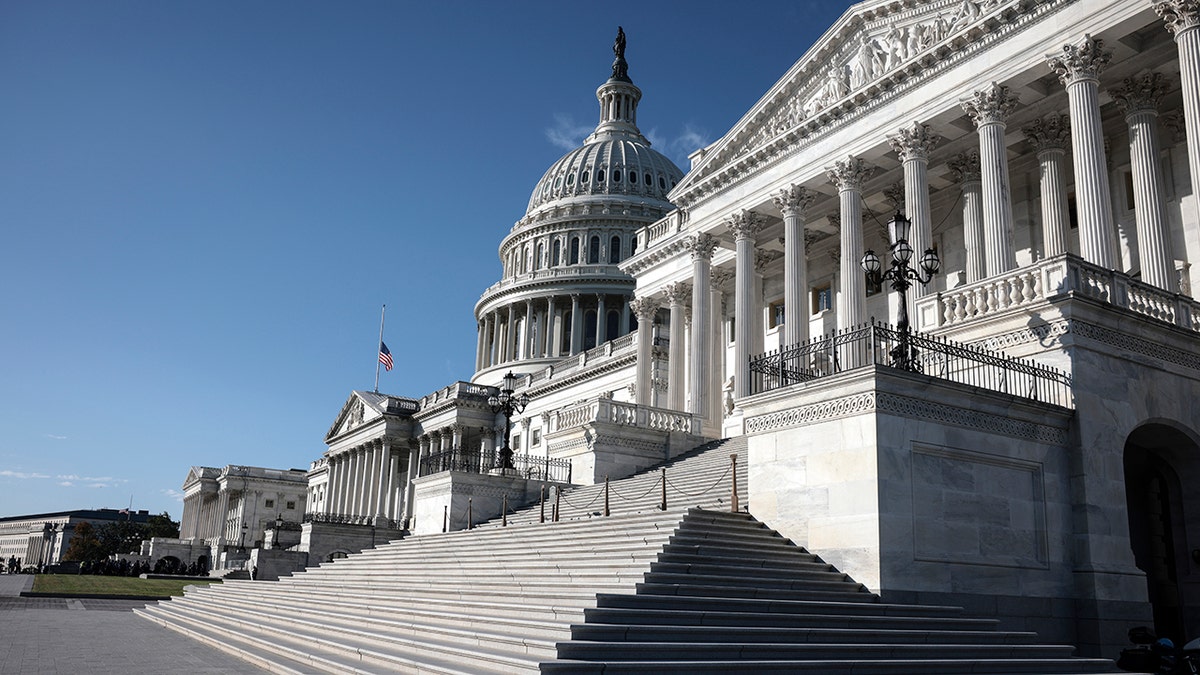America must take the power back from Washington D.C.: Conventions of States Action president
Convention of States Action President Mark Meckler discusses his organization and its goals of restoring democracy within American politics on ‘Fox & Friends Weekend.’
Following the release of President Joe Biden’s budget proposal, House Budget Committee Chairman Rep. Jodey Arrington, R- Texas, is proposing a means for voters to have a say about rising debt and soaring inflation.
Arrington introduced a resolution calling for an Article V convention of states. More than the required two-thirds of states previously called for either a fiscal responsibility amendment or a balanced budget amendment in the 1970s. Arrington’s legislation says, Congress "appears to have failed in its constitutional duty to count applications and call a ‘convention for proposing amendments.’" He introduced a similar measure last year, but now Republicans hold the majority in the House.
David M. Walker, former U.S. comptroller general under Presidents Bill Clinton and George W. Bush, was set to testify in favor of a convention in the House Budget Committee in March.
"We have to close the gap between revenue and expenditures," Walker told Fox News Digital. "We’ve got to stabilize the patient, stop the bleeding and then cure the disease."
RICK SCOTT REBUKES BIDEN IN BUDGET LETTER TO WHITE HOUSE, SAYS HE HAS MADE ‘THE SITUATION WORSE’

Rep. Jodey Arrington introduced a resolution to set a time and place for a convention to amend the Constitution with a balanced budget amendment. (Getty Images)
The disease Walker is referring to is the national debt, which stands at $31.6 trillion. The federal deficit is $1.38 trillion. Arrington’s resolution notes the national debt in 1979 was $860 billion and the value of the dollar has declined by about 75% since that time.
As comptroller general, Walker ran the Government Accountability Office, a federal watchdog agency that monitors waste and fraud. He is a co-founder and board member of the Federal Fiscal Sustainability Foundation, which supports the Arrington proposal to bring the matter to the voters.
The foundation contends Congress has only a ceremonial role in approving an Article V convention since the 40 states have already approved it, and the Constitution says Congress "shall" call a convention if two-thirds of the states call for it.
GOP CRITICIZES BIDEN'S BUDGET PROPOSAL IN FRONT OF HIS BUDGET DIRECTOR: 'FUNKY VOODOO ACCOUNTING'
House Republicans contend that Biden’s $73 trillion spending plan marks a 66% increase in spending for the next 10 years, and another $16 trillion in public debt with more than $1 trillion in deficits every year for the next 10 years.

President Joe Biden talks about his proposed federal budget. (Chip Somodevilla/Getty Images)
Arrington’s resolution calls for Congress to set the time and place for an Article V "Convention for proposing Amendments" and requires amendment ratification by a vote of the people in "three fourths (38) of the States via State Ratifying Conventions."
The resolution also designates the House clerk as responsible for confirming from congressional records whether, at any time, "at least two-thirds (34) of the states ‘had unrescinded continuing Applications on any national issues (plenary) plus the single issue of fiscal responsibility.’"
BIDEN'S DEFENSE BUDGET HIKES OUTPACED BY INFLATION, DRAWING GOP CRITICISM
The Fiscal Sustainability Foundation is communicating with governors and state attorneys general about possible litigation to force Congress to act, Walker said. But he said he’s not ready to name them yet.
Walker conceded this is not likely to pass Congress this year, but it will gain momentum for addressing the country’s fiscal woes.
"Congress doesn’t want this to happen. This will increase the light," Walker said. "With light comes heat and with heat comes action."
In 1979, a total of 39 states had approved measures calling for a convention of the states, or an Article V convention to pass either a balanced budget amendment, which would prevent expenditures from outpacing revenue, or a fiscal responsibility amendment, which would hold federal spending to a certain percentage of the GDP. That is more than the two-thirds, or 34 states, required. However, Congress took no action.
Article V of the Constitution provides two avenues for amending the Constitution. One is through a super majority in Congress. The other is that Congress, "on the application of the legislatures of two thirds of the several states, shall call a Convention for proposing Amendment." All previous constitutional amendments were passed through a two-thirds vote in Congress.

Once the U.S. Constitution was ratified by nine of the 13 states it became binding. (iStock)
Arrington, in an op-ed in The Hill, presented a broad four-part plan to "avoid financial Armageddon" that didn’t specifically reference a constitutional amendment. The first step is to pass responsible budgets to curtail inflation. The second goal is to educate the public about the financial problems. The third goal is to get the economy to grow. The fourth is to strengthen entitlements.
Several organizations, such as term limit advocates on the right and campaign finance groups on the left, have called for a convention of the states to amend the Constitution.
BIDEN'S ECONOMY HAS REACHED A 'TIPPING POINT,' BUDGET WATCHDOG WARNS
However, organizations as varied as the Cato Institute, a libertarian think tank, and Common Cause, a left-leaning government watchdog, have warned of dangers from conventions.
"An Article V constitutional convention is a dangerous path that puts all of our cherished rights, civil liberties, and freedoms at risk," Common Cause contends on its website. "Other than the convention that drafted our Constitution, there has never been a constitutional convention in the nation’s history; there is nothing stopping a new convention from rolling back our constitutional rights and civil liberties. Our right to vote, our right to free speech, our reproductive rights, our citizenship rules, and more could all be up for grabs."

The U.S. Capitol (Anna Moneymaker/Getty Images)
Advocates for the amendment process contend that 32 of the 40 states filed single issue amendment applications on federal spending for a constitutional convention. Also, whether Congress or a convention votes to amend the Constitution, 38 states – or three-quarters of the states – would still have to ratify the proposed amendment.
"Most importantly, the resolution would prohibit any proposed Amendments from being added to our Constitution without a majority vote of the people for yes-pledged delegates in three-quarters of the State Conventions," David Biddulph, also a co-founder of the Federal Fiscal Sustainability Foundation, said in a statement.
CLICK HERE TO GET THE FOX NEWS APP
Numerous other countries have a similar fiscal measure in place, said Barry Poulson, emeritus professor of economics at the University of Colorado.
"The United States is out of step as more than 90 countries are using fiscal rules today. The ‘Swiss Debt Brake,’ for example, was approved in 2001 by an 85% vote of the people," Poulson said in a statement supporting the legislation. "It slowed total annual spending growth, excluding social security, resulting in Switzerland being ranked as having the highest GDP per capita and the lowest borrowing cost of any AAA rated country. It is time for citizens to decide how much government they want and are willing to pay for."





